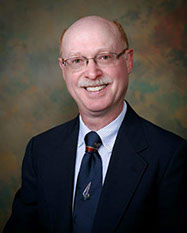This article originally was posted November 4, 2016 on Huffington Post.
I hate it when someone tries to tell me how I should take care of my patients. However, we are now working with the politics of “evidence-based medicine”. This era is characterized by groups of “experts” who get together and compile guidelines on how best to manage various medical conditions. The fact that our knowledge of patient management is constantly changing is of little concern to these “experts” nor are they of concern to third party payers who insist that the guidelines be followed or they will not pay for the care provided.
Guidelines are generally based on a review of the literature pertaining to a particular condition and the evidence is classified as to its credibility. For example, the most reliable evidence is graded as IA, meaning that it is based on more than one prospective randomized trial without important limitations. Level IB evidence is based on a single controlled randomized trial or non-randomized studies but the trial(s) have limitations such as inconsistent results or flaws in the methods used to derive the conclusions. A Level I classifications means that there is general agreement that the procedure or treatment is beneficial and effective. Examples of methodological flaws would be lack of blinding of the researchers or subjective determinations of the results. Trials which lose a large number of patients to follow up would probably be classified as IB.
Observational studies may be cited in the guidelines but they would not have the weight of reliability as the prospective randomized trials would have. Observational studies are generally cited as IIC, implying that the evidence for the alleged benefit of a treatment may not be clear and there is a difference of opinion about the usefulness of the procedure or treatment.
Guidelines are meant for the “ideal” patient that presents with a certain disease entity. I have never seen such “ideal” patient as they all have individual characteristics which must be taken into account when making a treatment plan. In fact, the publishers of the guidelines make it clear that the recommendations may not apply to all of the patients all of the time, but this is generally ignored by third party payers, the Joint Commission on Accreditation of Hospitals, and the Veterans Administration. If a physician has not followed a guideline, he is assumed to have given substandard care by many plaintiff attorneys.
Here is an example. There is good evidence that the incidence of surgical wound infections is decreased if prophylactic antibiotics are given within one hour prior to the skin incision. There are times when the incision is made a few minutes after the one hour time frame because there may be a delay in getting the patient intubated, and various catheters and lines placed. Clinically, these extra few minutes have no effect on the incidence of wound infections, but the people monitoring this performance measure will classify it as a violation of the guideline.
Now you have to understand that the people hired to monitor these “performance measures” may not be a nurse or physician. They are following rigid written protocols to make their determinations and they are not allowed to use their own judgment. When this type of violation occurs, the surgeon may be deemed to have provided substandard care and may not be paid as much for the procedure even if the results are excellent. This can be aggravating to the health care provider.
Another example deals with the choice of peri-operative antibiotics. We are currently faced with a crisis involving a very virulent form of bacteria called Staphylococcus aureus which is resistant to many antibiotics. We are allowed to use Vancomycin, an effective antibiotic to Staphylococcus aureus, but only if the patient fits certain criteria. The reason we are not allowed to use the drug for all patients is to try and limit the selection of bacterial strains which may be resistant to this drug; this would, theoretically, make treating future infections even more difficult. We are allowed to use the drug in patients who have been hospitalized within one year prior to the planned operation.
In cardiac surgery, most of our patients fit this latter requirement as they have been previously hospitalized to evaluate them for cardiac disease. However, the people who monitor the use of peri-operative antibiotics will consider the provider to be in violation of the measure if there is no documentation as to why the drug was used. In other words, the physician must write that Vancomycin was used because the patient had been hospitalized within the previous year. The provider must write what is inherently obvious in the medical records.
You can see why surgeons and other physicians are frustrated. We are forced to do more documentation which, we believe, does nothing to improve the care being provided to the patients while at the same time, if we do not do this documentation, it may be published that we are not good physicians! I know of no other profession which faces such scrutiny. There are no good options except to try to comply the best we can knowing that every year the third party payers will do their best to pay us less no matter what we do. Plus, what may be deemed the “standard of care” today, may not be the “standard of care” tomorrow.
When I was a resident in surgery in the early 80’s, it was considered wrong to give a blood transfusion without a compelling reason to a patient with renal failure as this would hurt the patient’s chance of having a successful kidney transplant in the future. We now know that patients who get transfusions are less likely to reject a transplanted kidney. Our knowledge and practice changed as a result of solid clinical research. If we forego clinical research in deference to “guidelines”, then advances in medicine are going to slow down and stop. Clearly, this will not be good for health care in America, or the world for that matter, as the United States has always been a leader in making advances in clinical care.
I like to tell my residents and the medical students that guidelines are just that; they are not the law. There is no one better able to take care of an individual patient than the physician taking care of that patient on a very personal level. After all, the patient’s individual characteristics may be such that he does not fit into the guidelines.
For now, the physician who does not follow the guidelines may be denied pay for his work or worse, his name may be published in a database accessible to the public and press where he may be deemed as a less than satisfactory practitioner. This cannot be in our public’s best interest.
by Darryl S. Weiman, M.D., J.D.
Professor, Cardiothoracic Surgery, University of Tennessee Health Science Center and Chief of Surgery, VAMC Memphis, TN


